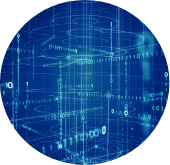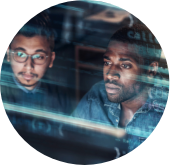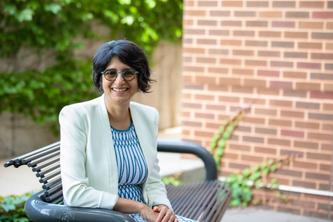
Driving the future of business education
The skills necessary to succeed in an increasingly complex world are changing. Through a significant undergraduate curriculum redesign, the U of M’s Carlson School of Management is reimagining how to educate tomorrow’s business leaders.
Building a better world Driving the future of business education
In 2006, Netflix was only mailing DVDs and there were no iPhones. It was also the last time the Carlson School of Management updated the core curriculum for its Bachelor of Science in Business degree.
Now, following a major redesign, a curriculum for undergraduate students launching in the fall features new courses, skills, and opportunities. Anchored around three realms—people and planet, data and technology, and critical thinking and problem solving—students will earn a degree that provides the knowledge and experiences they need to enter today’s workforce and enhance their lives.
Business Education

People and planet

Data and technology

Critical thinking and problem solving
“When our graduates were hired, employers sometimes came back to us and said, ‘They’re really bright, but they struggle to deal with ambiguity,’” says Vlad Griskevicius, associate dean of the undergraduate program, who partnered with former associate dean Raj Singh to get the conversation about the curriculum started. “[They] would ask for the recipe to solve a problem in cases where no recipe exists.”
Jack Boub (’23 Bachelor of Science in Business) represented student voices on the committee. “I’m fortunate to be here during a time when the administration is ready and wants to make changes,” says Boub, who is a member of the Carlson School’s undergraduate student government. “It opened the door for us to have a strong student voice.”

“I’m fortunate to be here during a time when the administration is ready and wants to make changes.”
-Jack Boub
The three cores
Preparing students to lead with purpose by incorporating diversity, equity, and inclusion (DEI) concepts and promoting sustainability and social responsibility frame this set of courses.
A new “Race, Power, and Justice in Business” course will emphasize historical perspectives of business in America, as well as systemic prejudices and equity considerations around modern tools, such as algorithms, which have been shown to have the potential to amplify human bias.
“This course will create a space for conversations to help students learn from each other,” says Griskevicius, noting that most business curricula leave DEI education out of the classroom. In fact, the school is working to ensure all classes are inclusive and adhere to DEI principles.
Additional courses include a revised ethics course that will focus on issues of corporate responsibility and sustainability, a “Leading Self and Teams” course that will build interpersonal competency and leadership capacity, and a new “Design Your Life” course that will build resilience and a growth mindset.
“It will help them make choices to not just thrive as business professionals, but also as human beings,” says Griskevicius.
Increasingly, data-driven decisions are made at every level of business, in every industry.
“Having systematic frameworks to understand how to use data in solving business problems is essential for all students,” says Soumya Sen, an associate professor of information and decision sciences who helped develop recommendations for new data elements.
The redesigned curriculum will ensure that all students graduate with a proficiency in analyzing data.
Sen notes that, upon graduation, “our students will be able to ask the right questions, understand how to apply analytics to real problems, and know how different models work so they can effectively lead teams and organizations.”

“Having systematic frameworks to understand how to use data in solving business problems is essential for all students.”
-Soumya Sen
The World Economic Forum’s top 10 job skills for 2025 include critical thinking, creativity and originality, resilience and flexibility, and complex problem solving. “These are role-agnostic, industry-agnostic skills,” says Priya Priyadarshini (’05 Master of Human Resources & Industrial Relations), general manager of employee career and development at Microsoft and a committee member. Priyadarshini is responsible for thousands of hires each year and believes “workers of the future need to learn how to learn, unlearn, and relearn, and be able to deal with uncertainty, complexity, and ambiguity.”

“workers of the future need to learn how to learn, unlearn, and relearn, and be able to deal with uncertainty, complexity, and ambiguity.”
-Priya Priyadarshin
The new curriculum applies those skills head on: In the first year, a problem-solving lab will teach approaches to problem solving. In the second year, students will apply those lessons to a real-world business problem in the Impact Lab Project, where they will have the opportunity to generate data-driven solutions and present recommendations to a client.
“This is a game-changer,” says Griskevicius. “We’re the first to try this and give all our students real-world practice so they’re ready to hit the ground running.”
Learn More
Bachelor of Science in Business degree
Adapted from a Carlson School alumni magazine story by Mo Perry.
Explore more stories in the series
Building a better world
- Categories:
- Business and Management





